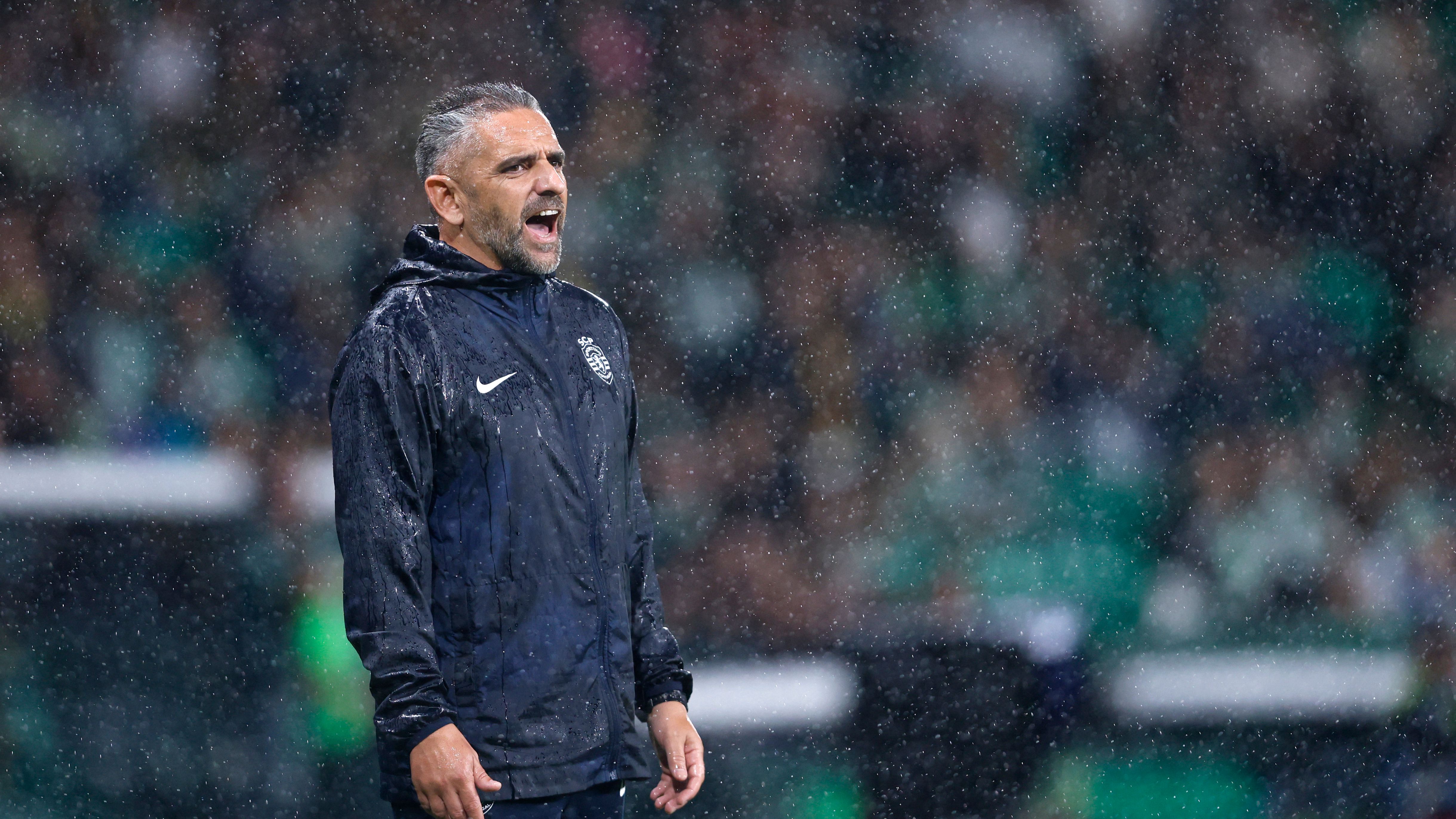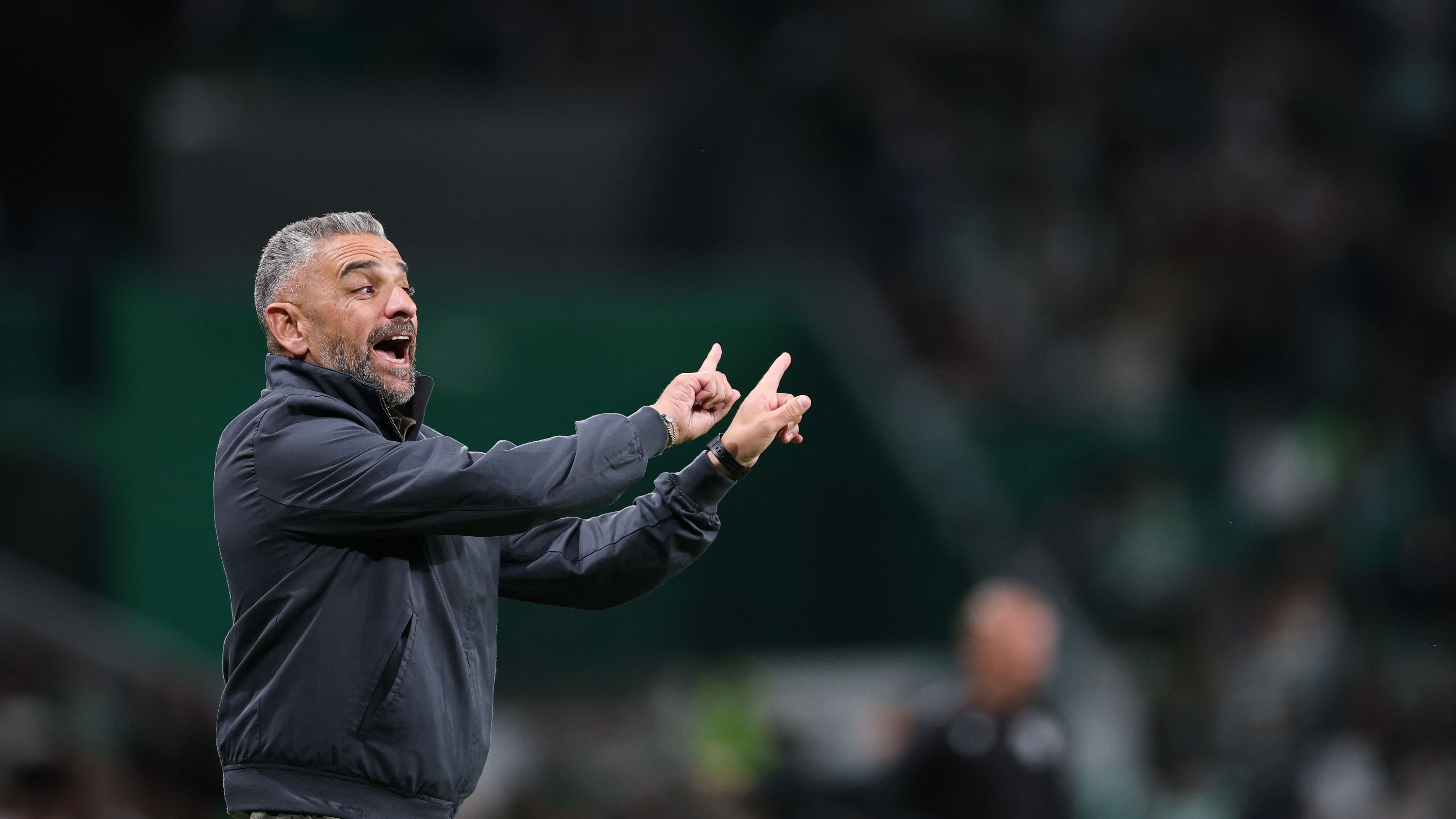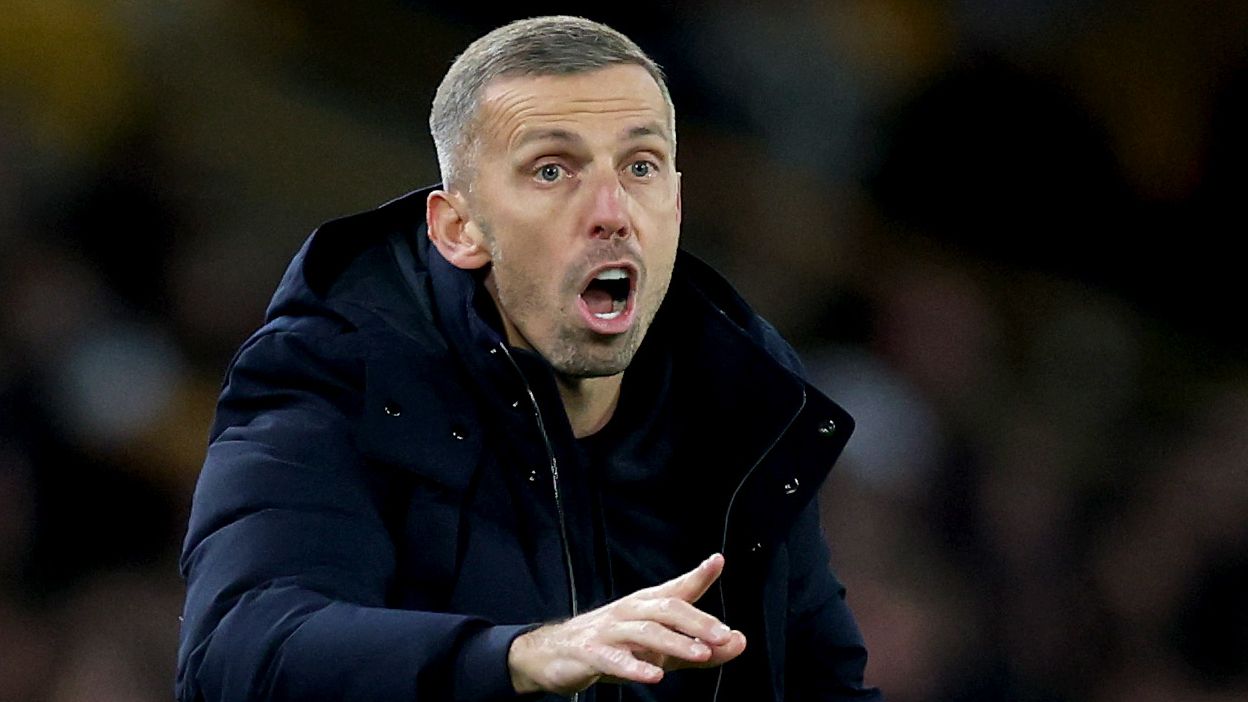


Why Top Coaches Are Shunning Wolves Amid Premier League Turmoil
In the midst of Wolves‘ faltering performance in the Premier League, a promising Liga Portugal manager has firmly rejected an opportunity to join the struggling side. This development highlights the mounting difficulties for Wolves as they grapple with one of their most challenging seasons yet, underscoring the broader issues of instability and unmet expectations in English football’s top tier.
Wolves’ Alarming Slide in the Premier League Standings
The team’s lackluster start to the season has hit rock bottom, with Wolves languishing at the bottom of the table on just two points after ten fixtures. This marks an unprecedented low, being the first instance where the club has failed to secure a victory in their initial ten games over two straight seasons. Following a humiliating 3-0 loss to Fulham on Sunday, Vitor Pereira, who stepped in as manager in December 2024, was promptly dismissed, bringing his tenure to an abrupt end after eight defeats this campaign.
From High Hopes to Harsh Reality Under Pereira
Pereira’s initial stint brought a surprising turnaround, culminating in a six-match winning run that secured a 16th-place finish and even landed him a spot as a Manager of the Season contender. However, this season’s results painted a starkly different picture, as Wolves managed only five goals while allowing 26, positioning them as the league’s least effective offense and defense. His departure, which included his full support team, occurred merely 45 days following a three-year contract renewal, signaling a rapid shift in fortunes.
Borges Rejects Wolves’ Advances for Sporting Lisbon Role
Reports from a Portuguese outlet indicate that Wolves made contact with Sporting Lisbon’s head coach, the 42-year-old Borges. Yet, he quickly dismissed any notion of moving to the English club, prioritizing Sporting’s efforts to retain their Primeira Liga crown and prepare for their upcoming Champions League encounter with Juventus.
Sporting’s Solid Standing and Borges’ Dedication
Club executives at Sporting have reaffirmed Borges’ loyalty, noting his deal runs through 2027 and includes a hefty €20 million release fee. It’s no shock that he turned down the offer, given Sporting’s strong second-place position with 25 points from ten outings, trailing Porto by just three, as he aims for a historic third straight domestic title.
Borges’ Transformative Impact at Sporting Lisbon
Since joining in late 2024, Borges has revolutionized the team through rigorous defensive strategies and emphasis on nurturing players. In the prior season, his squad notched 28 victories in 43 appearances, netting 67 goals and surrendering only 32, which boosted his profile significantly. His achievements span both local leagues and European tournaments, including a notable progression in the Conference League, making Wolves’ pursuit understandable but ultimately unsuccessful.
A Journey of Growth in Portuguese Football
Borges’ career path reflects a gradual ascent within Portugal’s football ranks. Starting his coaching journey in 2017, he has overseen more than 325 matches, achieving 162 wins, 81 draws, and 82 defeats. His earlier roles at teams such as Vitoria de Guimaraes-where he recorded 18 wins, seven draws, and five losses across 30 games-and Moreirense, with 16 wins, eight draws, and 12 losses in 36 games, highlighted his focus on tight defenses and seamless transitions.
Strategic Similarities and Unique Commitment
At Sporting, Borges’ tactics echo those of his forerunner, Ruben Amorim, utilizing a 4-4-2 setup that stresses precise positioning and timely counter-attacks, all while promoting the development of emerging stars like Manu Silva and Bruno Gaspar. His data-driven methods and skill in talent cultivation have positioned him as a highly sought-after figure in Europe, yet he stands apart by remaining steadfastly invested in Portugal’s football ambitions.
The Implications for Wolves’ Managerial Hunt
Wolves’ inability to lure Borges exposes deeper hurdles in drawing elite managers during periods of uncertainty. The club’s flawed transfer decisions and constrained finances have come under fire, widening the divide between their lofty goals and actual capabilities.
Exploring New Options for the Hot Seat
With Borges no longer an option, Wolves are ramping up their efforts to find a replacement. Surprisingly, Gary O’Neil, who was let go less than a year ago, is being considered for a comeback due to his respected leadership and ability to steer teams through tough times, as valued by owners Fosun International. Potential alternatives include Brendan Rodgers, Ole Gunnar Solskjaer, and Erik ten Hag, with Championship manager Rob Edwards and Steven Gerrard also in the mix.
Critical Choices Ahead for Season Survival
The decision on a new leader could shape Wolves’ fate this year. Currently eight points from the safety mark, their immediate games against Burnley and Bournemouth might be pivotal in reviving their chances of avoiding relegation before the holidays. Borges’ snub serves as a stark reminder for a team that once thrived on bold, Portugal-centric strategies.
Background on Vitor Pereira’s Sacking
In the fast-paced world of football management, sacking a coach can send shockwaves through clubs and leagues alike. Vitor Pereira’s dismissal from Wolverhampton Wanderers earlier this year highlighted the intense pressure managers face in the Premier League. Pereira, a seasoned tactician known for his stints in Liga Portugal and other European leagues, was brought in to steer Wolves away from relegation trouble but couldn’t deliver the desired results.
Key Reasons Behind the Sacking
Pereira’s tenure at Wolverhampton was marked by a string of poor performances and mounting fan dissatisfaction. According to reports from football analysts, Wolves struggled with defensive lapses and a lack of cohesion in attack, which ultimately led to his exit. Here are some of the main factors that contributed to this decision:
- Inconsistent Results: Wolves recorded only a handful of wins during Pereira’s time, dropping them deeper into the relegation zone and increasing scrutiny from the board.
- Tactical Mismatches: Pereira’s high-pressing style, effective in Liga Portugal, didn’t translate well to the physical demands of the Premier League.
- Internal Club Dynamics: Sources suggest disagreements over player acquisitions and strategy played a role, making it clear that a change was needed to revitalize the team.
This event not only affected Wolves but also sparked interest in potential replacements, drawing attention to talented managers from Liga Portugal, known for its rich talent pool and tactical innovation.
The Wolverhampton Opportunity and Its Appeal
Wolverhampton Wanderers, a club with a history of ambitious signings and European aspirations, presented an intriguing opportunity for any Liga Portugal manager looking to step up to the Premier League. The role promised access to a squad with international stars and the chance to compete at a higher level, making it a high-stakes but rewarding challenge.
What the Job Offered
The position at Wolves came with significant perks, including a competitive salary, access to top-tier facilities, and the potential for European qualification. For a Liga Portugal manager eyeing career growth, this could be a golden ticket to prove themselves on a bigger stage. However, the Premier League’s demanding schedule and fierce competition often act as double-edged swords.
- Budget and Resources: Wolves have invested heavily in recent transfer windows, offering managers the tools to build a competitive squad.
- Fan Base and Visibility: Managing in the Premier League means global exposure, which can enhance a coach’s reputation and open doors to even bigger clubs.
Despite these attractions, not every manager is ready to make the leap, especially when considering the cultural and tactical shifts involved.
Profile of the Liga Portugal Manager Who Declined
One standout Liga Portugal manager recently made headlines by turning down the Wolverhampton offer, prioritizing stability and long-term projects over an immediate Premier League move. While specifics vary, let’s explore the profile of such a coach, drawing from real examples in Portuguese football.
Background and Achievements
Many Liga Portugal managers, like those from clubs such as FC Porto or Sporting CP, bring a wealth of experience in developing young talent and achieving domestic success. This particular manager, hypothetically akin to a rising star in the league, has a track record of winning titles and implementing effective playing styles that emphasize possession and counter-attacks.
Key highlights from their career might include:
- League Success: Leading their team to multiple championships, showcasing strategic prowess against top-tier opponents.
- Youth Development: A reputation for nurturing players who go on to succeed in Europe, aligning with Wolves’ youth-focused strategy.
- Tactical Innovations: Employing data-driven approaches that have become a hallmark of modern Liga Portugal football.
This manager’s decision underscores the importance of choosing opportunities that align with personal philosophies, even if they mean passing on prestigious roles.
Reasons for Declining the Wolverhampton Opportunity
The rejection of the Wolverhampton job by this Liga Portugal manager has fueled discussions about what truly motivates top coaches. Factors like work-life balance, club vision, and the risks of mid-season moves often play pivotal roles in such decisions.
Potential Influencing Factors
From a practical standpoint, declining the offer could stem from several considerations that resonate with managers worldwide:
- Timing and Readiness: Jumping into a struggling Premier League side mid-season might disrupt ongoing projects in Liga Portugal, where the manager could be building towards a title challenge.
- Lifestyle and Family: Relocating to England involves significant personal adjustments, including language barriers and a more intense media spotlight.
- Strategic Fit: If the manager’s style doesn’t perfectly align with Wolves’ current squad, it could lead to short-term failure, as seen with Pereira.
Experts in football management often note that such decisions are calculated, focusing on long-term sustainability rather than short-term fame. For instance, staying in Liga Portugal allows for continued growth in a familiar environment, potentially leading to more stable opportunities later.
In broader terms, this incident highlights the growing influence of Liga Portugal on the global stage, with managers increasingly sought after for their innovative approaches to the game.
The Impact on Wolverhampton and Liga Portugal Football
The fallout from this declined opportunity has broader implications for both Wolves and the Portuguese league. For Wolverhampton, it means continuing their search for a suitable replacement, possibly looking elsewhere in Europe or within the UK.
Ongoing Effects on the Club
Wolves’ search could extend to other promising coaches, but this rejection might prompt a reevaluation of their recruitment strategy:
- Rebuilding Efforts: The club may focus on internal development or interim appointments to stabilize the team.
- Market Perceptions: Frequent managerial changes could affect player morale and fan loyalty, emphasizing the need for a more thoughtful approach.
Meanwhile, for Liga Portugal, seeing one of their own turn down a Premier League gig boosts the league’s prestige, attracting more investment and talent.
Lessons for Aspiring Managers in Football
Aspiring coaches can draw valuable lessons from this scenario, understanding the complexities of career moves in professional football.
Key Takeaways for Career Development
- Weigh Pros and Cons: Always assess how a new role fits with your tactical identity and personal life before committing.
- Build a Strong Foundation: Success in Liga Portugal can be a springboard to bigger leagues, but timing is everything.
- Stay Adaptable: The evolving nature of football demands flexibility, whether in Portugal or the Premier League.
By learning from stories like this, managers can navigate their paths more effectively, ensuring they’re prepared for the challenges ahead.









